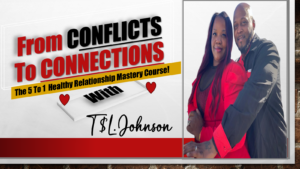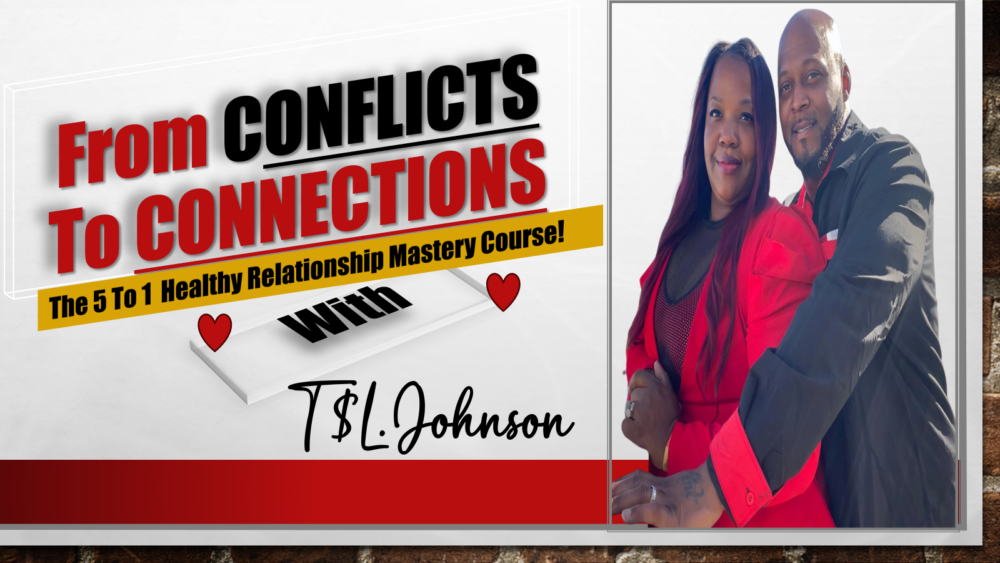Create a Judgment-Free Zone
Understanding the Importance of Non-Judgment
So, let’s get real for a second. When you want to dive into those deep, sometimes messy conversations, the last thing you want is for your partner to feel like they’re being judged. I’ve been there, and trust me, non-judgment is key. It allows both of you to express feelings openly without the fear of criticism. It creates a safe space where your partner can share their feelings and vulnerabilities without feeling attacked.
This judgment-free zone doesn’t just help with the conversation in the moment; it builds long-term trust. If your partner knows they can express their insecurities or fears without facing backlash, they’re likely to communicate openly in the future. Imagine how liberating that can be for them! Everyone deserves to feel safe in their most vulnerable moments, and fostering this non-judgmental vibe goes a long way.
On a practical level, you can show this non-judgment by actively listening and responding with empathy. Instead of jumping to conclusions or getting defensive, try saying things like “I understand where you’re coming from,” or “That sounds really tough.” These responses help to reinforce your commitment to understanding rather than critiquing.
Choosing Your Words Wisely
The words we choose have a huge impact on how our message is received. I’ve definitely learned this the hard way. If you’re bringing up sensitive topics, make sure you’re doing it with care. Avoid harsh language or anything that could be misconstrued as an attack. For real, softening your language can make a world of difference!
For instance, instead of saying, “You always do this,” you might try, “I feel hurt when this happens.” The latter approach expresses your feelings without putting your partner on the defensive. It transforms the conversation from one about blame into a shared experience, which is always a healthier tactic.
Another tip? Use “I” statements more frequently. It shifts the focus away from your partner’s actions and more toward how you are feeling. This is crucial in vulnerable conversations, where you want both parties to feel safe and understood.
Be Open About Your Own Vulnerabilities
Sometimes we forget that vulnerability is a two-way street. I’ve found that sharing my own struggles and insecurities can help my partner feel more comfortable doing the same. It’s like showing a bit of your own friendly fire to let them know they aren’t alone in their fears.
When I share my vulnerabilities, I notice a shift in the atmosphere. It’s more inviting and comforting. Your partner might better understand that it’s normal to have flaws and that they don’t have to wear a mask. Plus, it reinforces intimacy and connection, which are vital in any relationship.
The takeaway? Don’t be afraid to let your walls down occasionally. It can create a cycle of openness that really strengthens your bond.
Practice Active Listening
What Does Active Listening Mean?
Active listening is more than just hearing words; it’s about engaging with the speaker fully. I can’t stress enough how important this is when it comes to vulnerable conversations. It means putting your phone down, turning off distractions, and genuinely focusing on your partner’s words.
This engagement shows that you value their feelings. It’s not just about what they’re saying but how they’re saying it. Picking up on tone and body language can provide insight into their emotional state beyond the words. Plus, it reassures them that you genuinely care.
Additionally, paraphrasing back what you have heard shows your partner you’re listening. Something like, “So, what you’re saying is…” can very much validate their feelings while also helping clarify any misunderstandings.
Responding with Empathy
When my partner shares something deep and meaningful, I find it’s super important to respond empathetically. This doesn’t mean you have to solve their problems; sometimes, they’re just looking for understanding. I like to acknowledge their feelings and validate what they’re going through, rather than jumping straight into advice mode.
Saying things like, “I can’t imagine how that must feel” or “That sounds really challenging” can go a long way. It shows that you’re not dismissing their feelings but instead recognizing and respecting them. Empathy might be one of the most powerful tools we have in these situations.
And remember, if your partner is upset, sometimes they might just need to vent. Letting them know you’re there for them makes a huge difference. You don’t always have to fix things; just being present can be enough.
Be Patient
Vulnerable conversations aren’t always quick or straightforward. I’ve learned that patience is critical. Sometimes, the other person needs time to gather their thoughts or emotions. Giving them that space shows that you respect their need to process without pressure. It’s all about being present without rushing the conversation.
You might find that your partner needs a moment of silence to collect their thoughts. Or, they could take a while to articulate their feelings. Patience can do wonders in allowing the conversation to unfold organically, which often leads to more meaningful discussions.
Sometimes the most profound revelations come at unexpected times. So being patient can be the difference between a superficial chat and a heart-to-heart that strengthens your connection for the long haul. Life is messy, and these conversations can be too – but they’re also beautiful in their authenticity.
Encourage an Open Line of Communication
Create Regular Check-Ins
When I started implementing regular check-ins with my partner, it transformed our communication. It’s like setting a designated time to share what’s on our minds without the looming pressure of a “big talk.” This ritual makes conversations feel less daunting and more like a normal part of our relationship.
During these check-ins, we can talk about our feelings, frustrations, or even celebrate wins together. It doesn’t necessarily have to be heavy every time; the more routine it becomes, the more comfortable we both feel addressing vulnerabilities as they arise.
Also, it’s a great excuse to connect on a deeper level. With life’s hustle and bustle, it’s easy to let days pass without diving into how we’re really feeling. Scheduling those moments keeps the lines of communication fresh and alive.

Be Open to Feedback
Feedback is a gift, though it can be a tough pill to swallow. When sharing vulnerabilities, we should also be prepared to receive feedback from our partners. I always remind myself that constructive feedback is not an attack but rather an opportunity for growth.
Creating a culture of openness means being able to express not just feelings but also any concerns about how to engage with each other better. Listen actively to any feedback and be willing to adjust your habits or patterns that might not be working for both of you.
Remember, the goal is to foster understanding. Listening to feedback doesn’t mean you need to change who you are, but it does show that you’re committed to nurturing the relationship. This willingness can build a beautiful safety net for both partners.
Never Assume, Always Ask
Assumptions can kill a conversation faster than anything else. I’ve learned not to assume I know how my partner feels without actually checking in. Asking questions is a great way to dive deeper and shows my partner that I care about their perspective.
Instead of saying, “You’re upset because of XYZ,” try asking, “What’s bothering you?” This approach opens doors for more in-depth discussion. It places the focus directly on them and encourages a dialog that might reveal feelings or thoughts you weren’t aware of.
Encouraging questions not only helps avoid misunderstandings but also reinforces that you value their thoughts and feelings. It’s not just about “fixing” problems; it’s about understanding them fully, and asking is the best way to achieve that.
Be Responsive After the Conversation
Follow Up on Key Points
After having those deep conversations, always circle back. I’ve found that following up shows my partner that I truly value what we talked about. It can be as simple as asking, “How are you feeling about what we discussed?” It not only reinforces the initial vulnerability but also shows your commitment to understanding.
Checking in on key points allows your partner to feel heard and supported. It gives them a chance to reflect and possibly share more. It opens the door for continued dialog, leaving space for feelings to evolve and grow.
This follow-up is crucial in demonstrating that the conversation wasn’t just a one-off event but part of a series of meaningful engagements. It brings continuity, reinforcing that you’re both in this together.
Show Appreciation for Their Openness
Gratitude can go a long way, especially after a tough conversation. I always make it a point to express my appreciation for my partner’s willingness to open up. A simple “Thank you for sharing that with me” can help solidify the bond you’ve just deepened through your discussion.
It highlights that their vulnerability is valued rather than taken for granted. This recognition nurtures a positive feedback loop, making your partner more eager to engage openly in the future.
Never underestimate the power of appreciation. It reassures your partner that they made the right choice in sharing their feelings with you, and it’s crucial for maintaining a healthy atmosphere in your relationship.
Reflect Together
Taking some time to reflect together after a vulnerable conversation can be incredibly enlightening. It allows both partners to express how the conversation impacted them and what they might want to change or explore in the future. Reflecting together fosters growth and collective understanding.
I’ve noticed that when my partner and I sit down and reflect on such conversations, it often leads to new insights about each other. It’s like peeling back layers over time, creating a healthy rhythm of connection and growth.
This reflective time not only aids in comprehension but solidifies the emotional connection you are cultivating. It reminds both partners that they are allies in navigating the complexities of life and emotions.
Frequently Asked Questions
1. What’s the best way to start a vulnerable conversation with my partner?
Starting with a gentle introduction, like saying “I’d like to talk about something that’s been on my mind,” can help set a comfortable tone. Make sure to choose a private, relaxed setting where you both feel at ease.
2. How do I handle it if my partner gets upset during the conversation?
It’s important to approach their feelings with sensitivity. Validate their emotions and allow them the space to express what they need. You can ask, “Would you like some time, or would you prefer to talk about it now?”
3. Is it healthy for both partners to share vulnerabilities?
Absolutely! Sharing vulnerabilities can create deeper intimacy and understanding in a relationship. It fosters a safe space where both partners can express feelings, fears, and desires.
4. How often should we have vulnerable conversations?
There’s no set frequency, but I suggest checking in regularly. Make it a part of your ongoing communication. Regularly scheduled check-ins can help keep the dialogue flowing and remain attuned to each other’s feelings.
5. What should I do if my partner is reluctant to share?
Patience is key. Encourage them gently but don’t push. Creating a safe environment where they feel no pressure can help them open up in their own time. Sometimes, just letting them know you’re there for them is all they need to feel comfortable.

Schedule Your First 20-Minute Coaching
Call With Us Today to see if we fit . You pick the price!
Click Here





